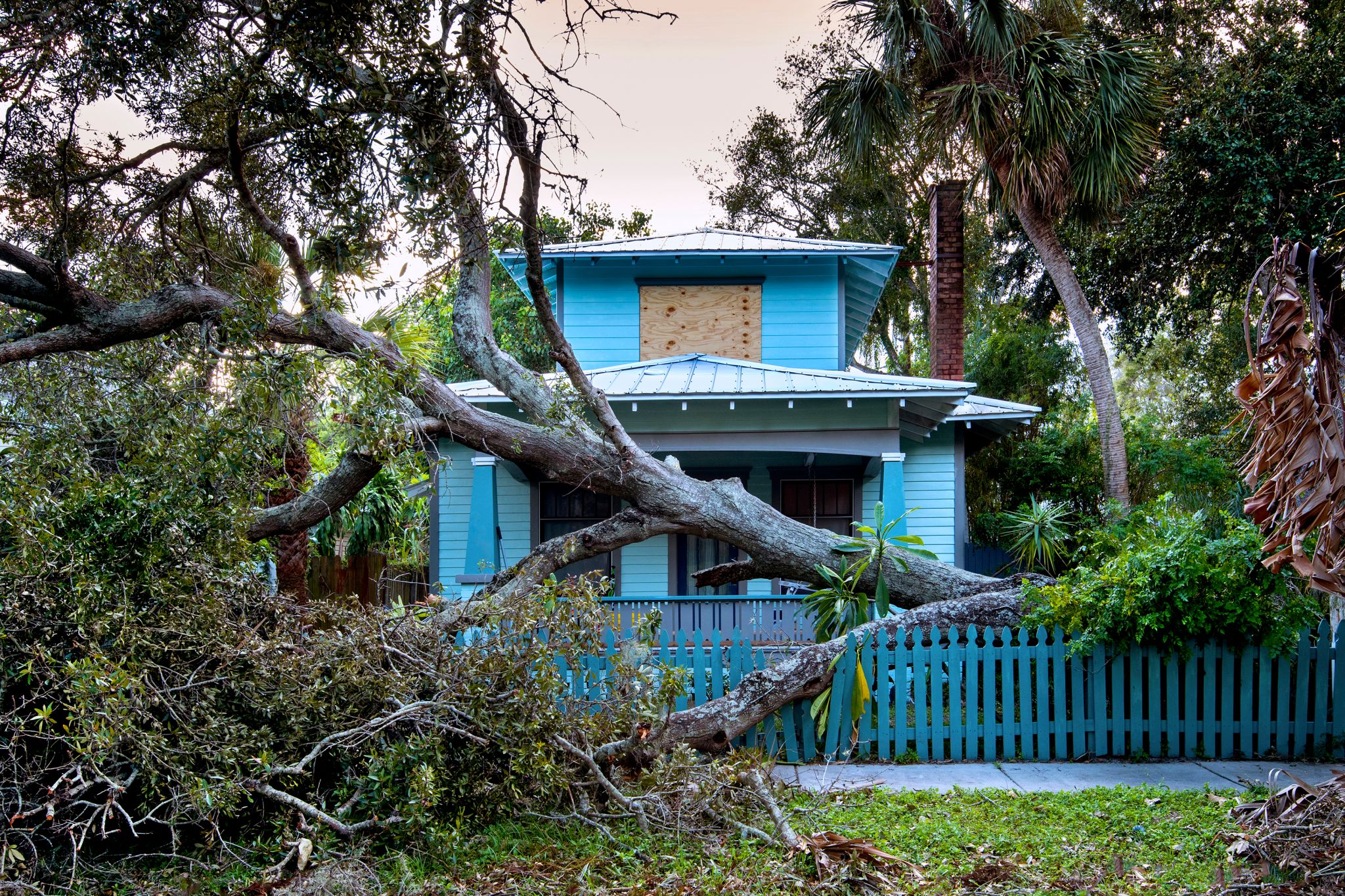Hurricanes are a force to be reckoned with, especially since the season sticks around so long and does damage beyond coastal areas. For example, the Atlantic coast hurricane season lasts from June through November, with storms likely to peak from August to October. And even though the East Coast and Gulf Coast are most at risk, wind and rain damage can extend well inland.
Long before a hurricane makes landfall, homeowners should assess their insurance needs. That's because most insurers won't issue policies when a storm is imminent. Several factors play into the cost of hurricane insurance. Those include where you live, what your house is worth, and how much deductible you're willing to pay.
Hurricane Insurance: What's Covered?
Hurricane coverage varies by state. In general, homeowners insurance will cover damage from wind and wind-driven rain. So, if high winds rip off your shingles and water penetrates the roof, the damage is usually covered. Before choosing a policy, read it carefully and look for limitations on wind and water damage.
The fine print is especially important. That's because more insurers are excluding damage from hurricanes altogether, says Frank Darras, an insurance attorney in Ontario, Calif. If you live in states like Florida, Texas, or Louisiana, you may need to purchase homeowners insurance with supplemental hurricane coverage. Or, you may want to buy separate windstorm and flood policies.
Even homeowners policies that don't exclude hurricanes will typically exclude damage from floods caused by rising water. Rising water can result from groundwater surge, tidal surge, or overflowing lakes and rivers. Flood insurance is available to most homeowners through the National Flood Insurance Program.
Homeowners at the greatest risk from high winds should check with their state insurance commissioner to help determine what additional coverage is needed. States threatened by hurricanes usually operate high-risk insurance pools that offer hurricane coverage, says David Miller, head of Brightway Insurance in Jacksonville, Fla.
Hurricane Insurance: How Much Does it Cost?
The cost of comprehensive hurricane coverage can vary, but averages $2,555 per year. On top of the premium, policies issued in states that are most susceptible to storms can come with hurricane deductibles. They typically range from 1% to 5% of the insured value of a home, but can be higher in high-risk coastal areas.
Hurricane deductibles usually kick in when damage results from a named storm. That means if your house is insured for $300,000 and it's damaged in a hurricane, the hurricane deductible will range from $3,000 (1% of insured value) to $15,000 (5%). Although some states allow homeowners to choose the hurricane deductible, others set it. For example, the Alabama Insurance Underwriting Association offers wind/hail/hurricane deductible options of 1%, 2%, 5%, and 10%. Remember, the higher the deductible, the lower the premium.
Homeowners should review their hurricane risks and current coverage to see whether they need more insurance, Darras says. In addition, he suggests factoring in the condition of the house. For example, new constructions are more likely to be built to withstand high winds. On the other hand, older homes weren't subject to stricter building codes, so, they can be more vulnerable. You'll want to talk to a home inspector or a contractor to get the lowdown on condition.
How to Lower Cost of Coverage
There are ways to lower the costs of coverage. Hurricane-mitigation improvements, such as storm shutters and secondary water protection (essentially an extra layer of water-proofing between shingles and the roof sheathing), are options. Miami is located in one of the most expensive states for homeowners insurance in the country. An older Florida masonry home with a replacement value of $300,000 and coverage for $150,000, with a 2% hurricane deductible, would have an annual premium averaging $9,204 without wind mitigation, protection on your home that helps decrease damage from strong winds like a hurricane. With wind mitigation, the average annual premium would be $4,160.
If your current homeowners policy sufficiently addresses wind damage but not flooding (a common situation), consider a separate flood policy. Just an inch of floodwater in your home can cause $25,000 of damage to your home, according to the Federal Emergency Management Agency. The average flood policy costs $738 per year, according to Bob Vila.
10 Recent Hurricanes and Tropical Storms
| DISASTER | DATE | CPI*-ADJUSTED ESTIMATED COST |
| Hurricane Nicholas | September 2021 | $1.1 billion |
| Hurricane Ida | August 2021 | $76.5 billion |
| Tropical Storm Fred | August 2021 | $1.3 billion |
| Tropical Storm Elsa | July 2021 | $1.3 billion |
| Tropical Storm Eta | November 2020 | $1.6 billion |
| Hurricane Zeta | October 2020 | $4.7 billion |
| Hurricane Delta | October 2020 | $3.1 billion |
| Hurricane Sally | September 2020 | $7.9 billion |
| Hurricane Laura | August 2020 | $25.3 billion |
| Hurricane Isaias | August 2020 | $5.2 billion |
Source: National Centers for Environmental Information
Review Your Policy Now
Procrastination isn't your friend. Some policies have a waiting period before taking effect. And once a tropical storm is named or a hurricane watch declared, you're unlikely to be able to purchase a policy to cover that storm. So, allow enough time to determine your needs and gather information. Set aside a day to review your current policy and get quotes on additional coverage.
"It comes down to risk tolerances," Darras says. "What does your policy cover? Where do you live, and what is the risk you're facing? What can you afford? And how much risk are you comfortable with? Those are the questions you need to ask when you're deciding on purchasing more coverage."
